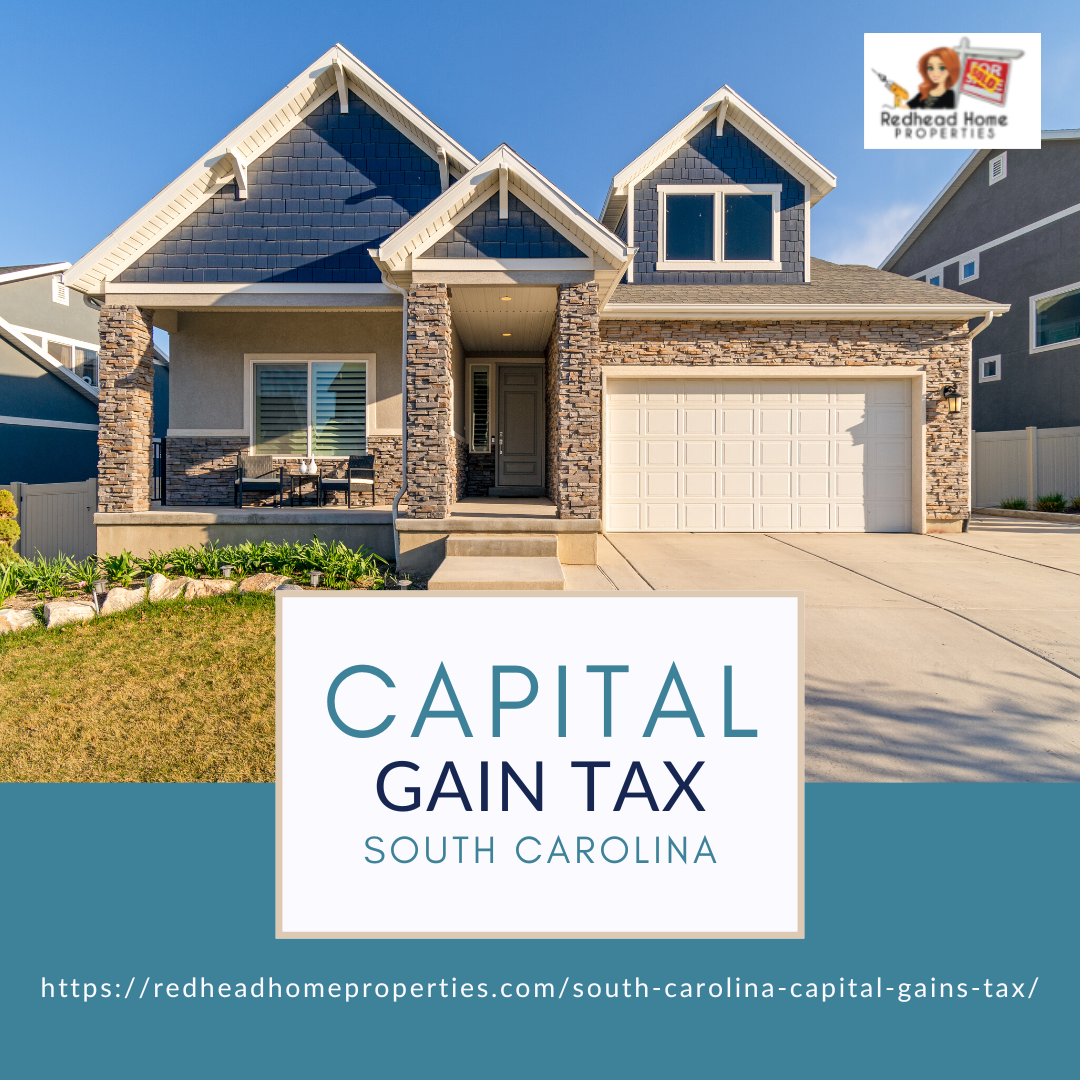User blog: Redhead Home Properties

Introduction
Selling your property in South Carolina can come with tax implications, especially when it comes to capital gains. In this comprehensive guide, we'll delve into the intricacies of South Carolina capital gains tax, covering everything you need to know to make informed decisions before selling your property.
Understanding South Carolina Capital Gains Tax
South Carolina imposes a capital gains tax on the profit earned from the sale of real estate or other investments. The tax rate varies depending on various factors, including the duration of ownership and the type of property. For primary residences, homeowners may be eligible for certain deductions and exclusions that can help minimize their tax liability.
Key Considerations for Homeowners
Homeowners in South Carolina should be aware of the capital gains tax rate, which typically aligns with their income tax rate. However, certain exclusions may apply, such as the primary residence exclusion, which allows homeowners to exclude a portion of their capital gains from taxation. Additionally, long-term capital gains are taxed at a lower rate than short-term gains, providing an incentive for long-term property ownership.
Advice for Real Estate Investors
Real estate investors in South Carolina should carefully consider the tax implications of selling their investment properties. Utilizing strategies such as the 1031 exchange can defer capital gains taxes by reinvesting the proceeds from the sale into a like-kind property. It's essential for investors to work with knowledgeable professionals, such as financial advisors or accountants, to maximize tax efficiency and minimize liability.
Conclusion
Navigating South Carolina capital gains tax can be complex, but with the right knowledge and guidance, homeowners and investors can make strategic decisions to minimize their tax liability. By understanding the tax implications and exploring available deductions and exclusions, individuals can optimize their financial outcomes when selling property in South Carolina.
Frequently Asked Questions About South Carolina Capital Gains Tax
What is the capital gains tax rate in South Carolina?
The capital gains tax rate in South Carolina varies depending on your income tax bracket, with long-term capital gains typically taxed at a lower rate than short-term gains.
How long do I need to own a property to qualify for the primary residence exclusion?
To qualify for the primary residence exclusion in South Carolina, you must have owned and occupied the property as your primary residence for at least two out of the past five years leading up to the sale.
How does a 1031 exchange work in South Carolina?
A 1031 exchange allows real estate investors to defer capital gains taxes by reinvesting the proceeds from the sale of an investment property into a like-kind property. This strategy can provide tax advantages and allow investors to grow their real estate portfolios effectively.
